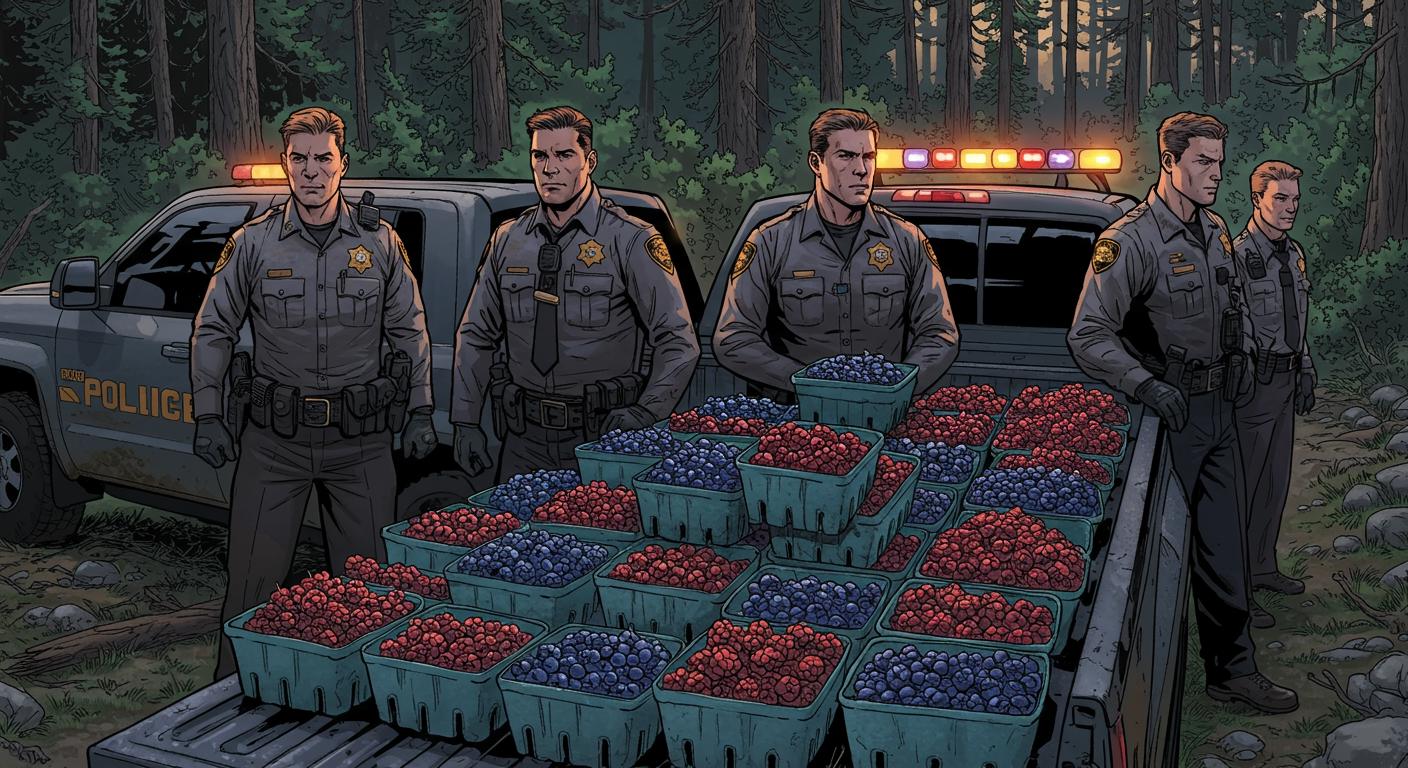Let’s be honest: when you think of headline-worthy crime in the Pacific Northwest, your mind probably jumps to the usual suspects—cattle rustling, maybe the annual porch pirate roundup. But every so often, the universe tosses out a story that’s neither bank heist nor cryptid sighting, but somewhere curiously in-between. This week in Idaho, authorities hauled in a record berry bust—over 100 gallons of illegally harvested huckleberries, as first reported by NBC Montana.
It sounds almost folkloric, but this episode of agricultural intrigue played out in verifiable fact, with multi-agency patrols sweeping Boundary County’s wilderness and commercial berry pickers darting through the trees. The drama? Very real—if you’re a berry.
A Backcountry Sting, Huckleberry Edition
The Boundary County Sheriff’s Office described the operation as a joint effort in which deputies worked alongside the U.S. Forest Service, U.S. Border Patrol, and Kootenai Tribe of Idaho Law Enforcement. According to information provided to NBC Montana, the patrol’s purpose went beyond enforcing the rules—it was also about keeping remote recreational areas safe for both casual foragers and hikers, and, on the flip side, targeting illegal commercial activity that can threaten local resources.
The sizeable haul wasn’t from a band of kids on a summer adventure. Authorities say the berries were seized from suspected commercial pickers believed to be the same individuals who had recently evaded U.S. Border Patrol earlier that week. In a detail highlighted by NBC Montana, this earlier incident has reportedly triggered an ongoing federal investigation, giving the affair a layer of seriousness not often associated with wild fruit.
Sheriff Travis Stolley, quoted by NBC Montana, emphasized preserving access and safety for everyone, stating, “Our backcountry is something we want to ensure stays a safe place for berry picking and outdoor activities. We are committed to keeping it safe and accessible for everyone. Thanks to our partners and Forest Service grant support, we were able to take decisive action against suspected illegal commercial operations.” The multi-agency patrols themselves were supported by grant funding from the U.S. Forest Service, underscoring just how significant protecting these resources has become.
Huckleberries: The Unexpected Commodity
For those less acquainted with the region’s obsessions, huckleberries are more than just a seasonal snack—they’re a cornerstone of local culture and a minor economic engine, fueling everything from preserves to summer festivals. Given their wild and relatively scarce nature, it’s perhaps not all that surprising that commercial pickers might be tempted to gather on a scale more befitting a fruit distributor than a family picnic.
The outlet also notes that law enforcement is urging outdoor enthusiasts to stick to marked trails, carry essentials, and report anything suspicious, a routine reminder that now seems tinged with intrigue. After all, when a hundred gallons of berries can vanish from the woods in short order, the lines between simple hiking advice and true crime prevention seem to blur.
A Slice of Conservation—and Consequence
Interesting how something as innocuous as a berry can highlight broader issues of resource management and access. The report from NBC Montana details how officers on these patrols not only enforce the rules but offer guidance and support to everyday visitors: helping them stay safe, explaining responsible recreation, and quietly reminding everyone that the wild belongs to the many, not the few.
It’s worth pausing to consider: does this berry bonanza mark the high-water mark for Idaho’s underground fruit circuit, or is it just a warning shot in an ongoing back-and-forth over natural resources? The nature of the investigation—federal involvement and all—suggests that, at least for now, law enforcement is keenly interested in drawing a line between amateur gathering and commercial exploitation.
In the meantime, the woods remain—for the most part—open, fragrant, and (at least temporarily) a little lighter on huckleberries. And if you find yourself crossing paths with someone carrying more berries than a small bakery could reasonably process, well, perhaps you’re glimpsing the edge of another strange chapter in the Northwest’s quietly running history of the odd, the local, and the unexpectedly serious.







